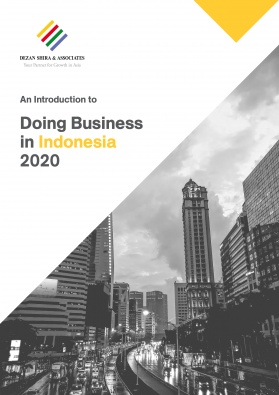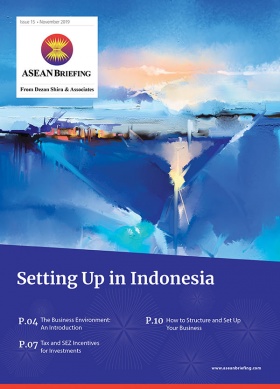Indonesia Issues Regulation on Taxing Digital Services
- Indonesia introduced Reg 48/2020 in May 2020, which imposes a 10 percent value-added tax (VAT) on digital service providers.
- Through this regulation, the government hopes to reap from the tax proceeds of the country’s multibillion-dollar digital economy.
- Intangible goods and services subject to VAT include e-books, apps, games, software, movies, and music, among others.
Indonesia’s Ministry of Finance issued Regulation No. 48/PMK.03/2020 (Reg 48/2020) in May 2020, which imposes a 10 percent value-added tax (VAT) on digital services on non-resident companies, starting July 1, 2020.
The tax will apply to companies that have ‘significant economic presence’ in Indonesia operating in sectors, such as big data, multimedia, and software.
Proceeds from the tax revenue will be used to support the economy as it battles the impact of the pandemic. Indonesia’s digital economy is estimated to be valued at US$130 billion by 2025, according to a study by Google, Temasek Holdings, and Bain & Company.
The country did issue its first law on e-commerce in late November 2019, which was issued to ensure tax compliance among domestic and international e-commerce businesses as well as improve governance on electronic trading activities.The country is following a trend seen with other ASEAN members who have begun taxing foreign digital service providers.
Singapore issued the Overseas Vendor Registration regime in January 2020, which obligates foreign digital service providers to register and pay for goods and services tax (GST) rate of seven percent. Malaysia has obligated providers to pay the six percent digital service tax rate whereas Thailand’s government has approved draft legislation to impose VAT of seven percent.
Digital intangible goods and services subject to VAT
The following digital intangible goods will now be subject to VAT:
- The use or the right to use copyrights material in the field of art, science, and literature, such as e-books, magazines, software;
- The right to use recorded images or sounds which are distributed via fiber optics, satellite, or cable, among others;
- Image recordings or sound recordings used in television broadcasts, radio broadcasts, which are distributed via fiber optics, satellite, or cable, among others; and
- Motion-picture films or videotapes used as television broadcasts.
Collection of tax
Digital products and services providers are obligated to charge VAT if:
- They are international merchants who sell digital products to Indonesian customers;
- They are international online marketplaces who sell digital products to Indonesian consumers; or
- Indonesian operators of online marketplaces that sell foreign digital products to local consumers.
International digital service providers should note that under the regulation, an Indonesian customer is classified as:
- Someone who provides an Indonesian billing and mailing address;
- Utilizes credit or debit cards provided by Indonesian financial institutions; and
- Orders the product or service using an Indonesian IP address.
Appointed VAT collector
International companies that have been appointed as a ‘VAT collector’ by the Ministry of Finance are obligated to charge the 10 percent VAT rate on the sales of digital products to Indonesian consumers.
To be appointed as a VAT collector, the relevant party must have total transaction values with local consumers that exceed a certain amount (this will be determined by the Director-General of Tax at a later date), or the amount of online traffic (also to be determined by the Director-General of Tax) that exceed a certain volume.
VAT payments must then be deposited to the state treasury at the end of every month and can be paid using the following currencies:
- Indonesian rupiah;
- United States Dollar; or
- Other foreign currencies to be determined by the Director-General of Tax.
For more information on Indonesia’s digital tax, the Director-General of Tax has compiled an FAQ, which can be found here.
About Us
ASEAN Briefing is produced by Dezan Shira & Associates. The firm assists foreign investors throughout Asia and maintains offices throughout ASEAN, including in Singapore, Hanoi, Ho Chi Minh City and Jakarta. Please contact us at asia@dezshira.com or visit our website at www.dezshira.com.
- Previous Article Indonesia Issues Implementing Regulation for Interest Subsidies Program
- Next Article Indonesia Issues Tax Incentives for COVID-19 Support








